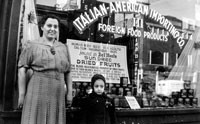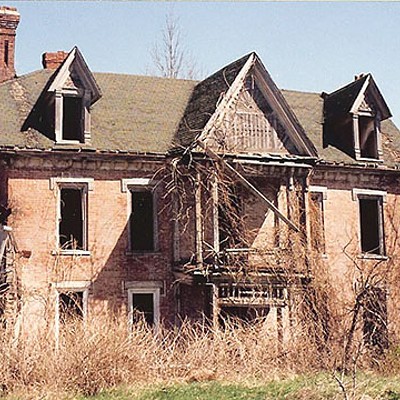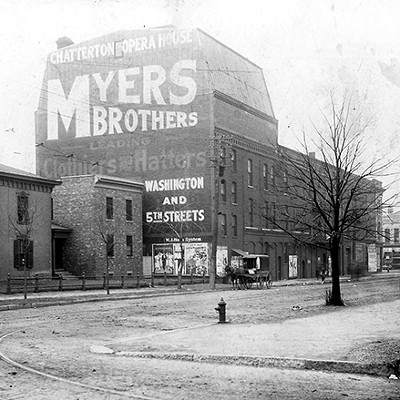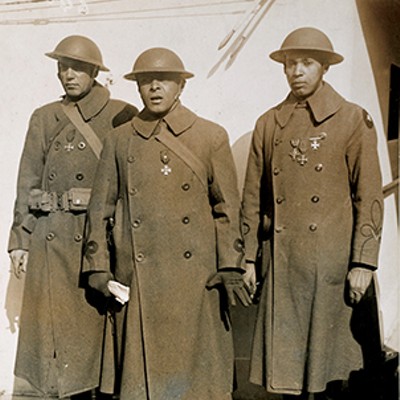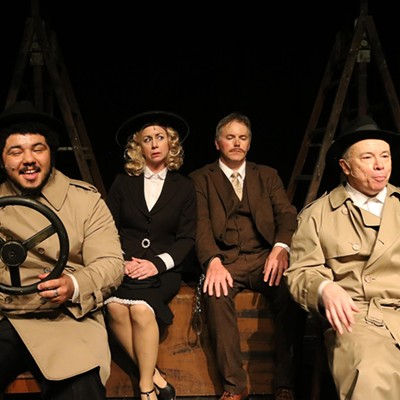Of the five senses, the olfactory sense is the most closely related to memory. All of us have experienced the phenomenon of being suddenly and almost magically transported back in time, in the mind's eye, when a particular scent triggers a reaction within us and we find ourselves in that place that we subconsciously associate with the smell. It might be the odor of honeysuckle that carries you to the backyard of your childhood home; or the oil-and-gas smell of a service station that sends you back to Route 66, somewhere in Oklahoma; or a whiff of Chanel No. 5 that reminds you of a party you attended on Philadelphia's Main Line. For me -- and, I'm quite sure everyone else who ever set foot in the place -- an indelible memory has been imprinted by the smell of Bill and Dora Frasco's Italian-American Importing Company.
One person who will never forget the store, for that and many other reasons, is Springfield resident George Egizii, whose father, Arquilio, founded the store in 1918 with Bill Frasco, Arquilio's brother-in-law and a fellow Italian immigrant. They started a retail grocery store at 115 N. Sixth St. and later moved to 111 N. Sixth St. In both locations they catered to immigrant Italians by selling imported goods shipped here from New York -- olive oils, cheeses, and canned goods such as anchovies that were not readily available elsewhere in town. They made deliveries to coal-mining towns such as Taylorville, Kincaid, and Bulpitt, where there were strong concentrations of Italians. Egizii is the last direct link to the store (and, later, a wholesale-grocery business) that employed so many of his family members. Now 84, he spends his days helping his daughters operate the highly regarded La Sorella restaurant on Robbins Road.
"They started bringing in California grapes by railroad car," Egizii says, "Zinfandel and Muscatel for the Italian people to make their wine. They came in 25-pound boxes, 900 cases to a car. In 1929, they sold 29 carloads. Here's the deal, see? They were only making $3 a day in the mine. What those old-timers used to do was put money away on payday. It took 500 pounds to make a barrel of wine. They were careful buyers. They didn't go out and splurge like you do today -- no, $10 or $15 was a big order."
In 1934, the Schlitz Brewing Co., no doubt feeling the effects of the lean Prohibition years just passed, made its warehouse at the southeast corner of 10th and Washington streets available for purchase. With the aim of expanding the wholesale-grocery business, the partners bought the building, which was located across the street from the Wabash Hotel, kitty-corner from the Wabash Depot, and across the tracks from the National Biscuit Co. All are now gone. It was an old brick two-story building with wooden floors and no elevator, the recollection of which causes Egizii to wince. Well he remembers moving 100-pound bags of sugar and flour up and down the stairs by hand. He also drove the delivery truck.
"I've been a member of the Chicago Motor Club since 1937," he says. "I bet not many people can say that!"
In the 1950s, the retail store was relocated to the warehouse. There, the aromas of Gorgonzola, Fontinella, and Romano cheeses combined with the scents of salami, pepperoni, cappicola, and prosciutto (all of which hung from the ceiling) and Greek olives, barrels of salted and dried codfish, and wooden crates of oily "broders" (smoked herring) to produce the unique ambience (and redolence) that seeped into the very floors and walls and made the place unforgettable for anyone who visited.
But people also remember the kindly Old World service of the proprietors. The Frascos kept working into their nineties, right up until the time of their deaths, just months apart, in 1979.
"They treated me right," Egizii says of his uncle and aunt. "She was my godmother. They always looked after me."
"They started in '18 and I was born in '19, so you might say I was born into it," he says. "You started there when you were big enough to carry a crate. Bill's brother Pete ran the warehouse with my four brothers -- Coco, Johnny, Pat, and Tony. They didn't stay around too long after they turned 18. But I was the youngest. Even when I was in the service, I knew that I'd have to come back and run it for Dad."
Egizii says his father, who died in 1950, was long urged by his doctor to move away from Springfield for health reasons, "but his home was here, his family was here, and his business was here -- so he stayed here."

